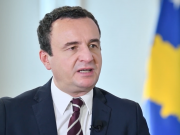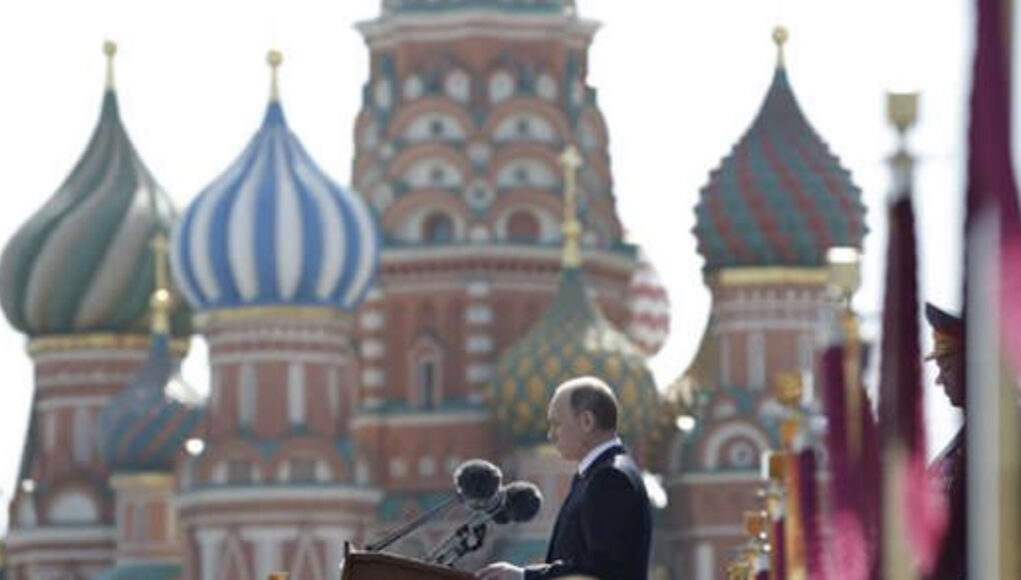As Russian military forces thrust deeper into Ukraine, Putin has evidently concluded that Moscow can withstand new financial sanctions and even Russia’s isolation from the West. He is convinced that NATO will not fight for Ukraine and is calculating that Western unity will start to weaken as the war continues and sanctions also damage the European economies. If Kremlin ambitions of conquest are to be frozen Washington must embark on a major new strategic objective to de-imperialize Russia.
Western governments have attempted various defensive and reactive policies to curtail Moscow’s expansionism. Their past failures have reinforced Kremlin perceptions that the West ultimately lacks the willpower to counter an aggressive Russia. The only strategy that can dent Putin’s self-confidence must focus on the future of Russia itself. Such an approach needs a clear objective and methodology. The ultimate goal would be to reverse Russia’s neo-imperial offensives by helping its citizens transform the state into a genuine federation that accepts its neighbors as independent countries who decide on their own international alliances.
However, as this “transformation scenario” becomes increasingly improbable because of Kremlin resistance to any political reform, US policy planners must prepare for an alternative option – the “rupture scenario.” When federalism and pluralism fail to materialize in the midst of economic decline and a crippling financial embargo then separatist voices will gain traction. The Kremlin will face diminishing support for its foreign aggression as domestic politics become more conflictive, resources thinly stretched, and citizens no longer acquiescent. It is worth remembering that only a few years before its collapse the Soviet Union was engaged in numerous foreign military escapades, controlled half of Europe, and continued to trumpet its economic superiority over the West, while disguising its growing existential crisis.
Moscow’s assertive foreign policies serve to disguise Russia’s domestic decline and state failure. Indeed, escalating internal vulnerabilities are likely to make the Russian regime more aggressive and confrontational to demonstrate its strength before its capabilities seriously decline. Extensive public protests in Belarus in the summer of 2020 over blatant election fraud were an early warning for Moscow. The conventional wisdom about a passive Belarusian public mirror the widely held image of Russian citizens. Support for protesting Belarusian citizens was reported in various parts of Russia and although the rallies were eventually subdued, similarly to Russia the causes of the protests were not addressed.
The unexpected demonstrations and storming of government buildings in Kazakhstan in early January 2022 in response to rising fuel prices served as another reminder to Moscow that public anger simmers below the surface. The appearance of stability and public passivity, for which Belarus and Kazakhstan have been renowned, cannot be taken for granted in Russia itself. Moreover, triggering events such as collapsing currencies and fast falling living standards can escalate public outrage and opposition.
Growing internal turmoil may convince Russia’s regime that a bolder and riskier foreign policy strategy can bring domestic benefits. But such a policy could seriously misfire. A military quagmire in Ukraine with mounting losses for Russia’s armed forces, accumulating evidence of Kremlin war crimes against civilians, and punishing Western sanctions will not be sustainable for Putin. Regimes that lose wars or cannot win them when they have staked so much on victory invariably collapse in Russia. Power struggles within the ruling stratum can then explode in full force.
In a recent video conference, Putin rejected a proposal to let Russian regions secede if they no longer want to be part of the state. He warned of a repeat of the bloody wars in a collapsing Yugoslavia during the 1990s and revealed that there were 2,000 territorial claims nationwide that should be treated “very seriously” as they could divide up Russia. Putin’s admission indicates that the country’s domestic conditions are deteriorating on several vital fronts: economic, demographic, social, regional, ethnic, and political.
It is in the national security interests of the US to help Russia either to federalize or fracture, to decentralize or disintegrate. Neglecting Russia’s escalating domestic problems that leads to fragmentation can prove more damaging to Western interests than preparing to manage the international repercussions. An accelerated rupture of the Russian state will challenge the responses of the NATO alliance.
One cannot assume that Russia’s fracture will be involve a sudden and painless collapse of the regime. Much more likely it will be a long drawn out and bloody process. The triggers for rupture are many – a power struggle that provokes conflicts between security organs, an explosive protest against economic impoverishment; an inter-ethnic clash that escalates into a wider conflict; a violent provocation by hard-liners or nationalists that escapes police control; and mutinies in the military or intra-military battles based on ethnic allegiance.
State rupture will also impact on neighboring countries. Some will be susceptible to spillovers of conflict or subject to Moscow’s provocations, as the Kremlin will seek to divert attention from domestic upheaval. Other states will benefit from Russia’s cleavages by easing their security concerns and regaining lost territories. A federal collapse will also impact on the positions and strategies of major outside powers and can lead to significant strategic realignments and further raise China’s stature.
The US needs to develop an anticipatory strategy for managing Russia’s demise by supporting regionalism and federalism, acknowledging aspirations to sovereignty and separation, calibrating the position of other major powers, developing linkages with nascent state entities, strengthening the security of countries bordering Russia, and promoting trans-Atlanticism and trans-Pacificism among emerging states. Neglecting Russia’s state failure can prove more damaging to Western interests than preparing to manage its international repercussions. The sudden collapse of the Soviet Union over thirty years ago should serve as a lesson that geopolitical revolutions occur regardless of Kremlin denials or the West’s adherence to a transient status quo. My guide to the collapse of the Russian Federation will be published in the Spring.
Janusz Bugajski is a Senior Fellow at the Jamestown Foundation in Washington DC. His recent book, Eurasian Disunion: Russia’s Vulnerable Flanks, is co-authored with Margarita Assenova. His upcoming book is entitled Failed State: A Guide to Russia’s Rupture
































